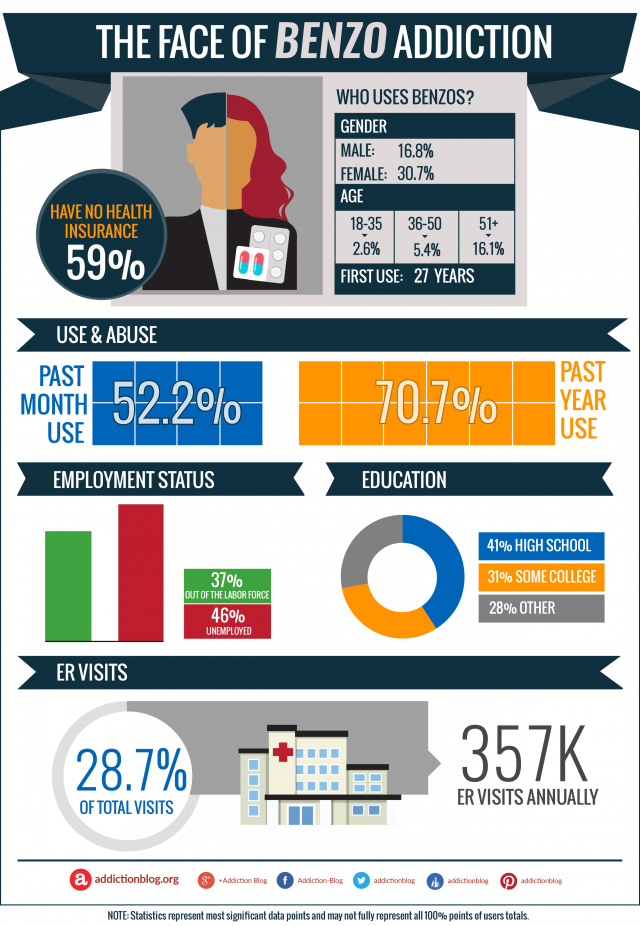Who uses benzos in the U.S.?
An estimated 50 to 70 million Americans suffer from chronic sleep disorders. It is very likely that at some point a doctor will prescribe a benzodiazepine drug to help them deal with anxiety disorders or insomnia (although there might be other solutions to dealing with insomnia). In fact, roughly 1 in 20 U.S. adult citizens filled a benzodiazepine prescription during the course of a year.
In 2008, a report found that approximately 5.2% of US adults used benzodiazepines. And, this percentage increases with age:

- 2.6% of benzo users are 18-35 year olds
- 5.4% of benzo users are 36-50 year olds
- 7.4% of benzo users are 51-64 year olds
- 8.7% of benzo users are 65-80 year olds
Moreover, not only does benzodiazepine use increase with age, it is nearly twice as prevalent in women as men.
Long term benzo medication use
Benzodiazepines are one of the most commonly prescribed classes of psychotropic medications in developed countries. These medications are advised to be used for only short-term management of anxiety and sleep disorders.
However, doctors keep prescribing and patients keep taking them for far long than it is suggested or safe. Statistics suggest that among older adults who are treated with benzodiazepines, nearly one-third use benzodiazepines on a long-term basis. In fact, roughly 9 out of 10 older adults who use benzos long-term have their prescriptions written exclusively by primary care physicians or other nonpsychiatrists.
Several factors may contribute to the observed high rates of long-term benzodiazepine use in older adults, including:
- treatment of persistent anxiety disorders
- deficits in specialized knowledge concerning benzodiazepine prescribing risks in geriatric care
- limited access to alternative effective evidence-based treatments (such as cognitive behavioral therapy for insomnia)
- unwillingness of some older people to consider reducing or discontinuing benzodiazepines
- competing clinical demands on physician time related to the other physical health needs of their patients.
Benzodiazepine use questions
Do you have something that you’d like to add or ask? We kindly ask you to post your questions and comments in the designated section at the bottom of the page.
Like our infographic? Feel free to share it with others and help spread good information.
Reference Sources: SAMHSA: Emergency Department Visits for Adverse Reactions Involving the Insomnia Medication Zolpidem
ResearchGate: The misuse of Ambien among adolescents: Prevalence and correlates in a national sample
DrugAbuse: Drug Abuse Statistics
SAMHSA: (N-SSATS data) and TEDS
National Survey on Drug Use and Health (NSDUH)








Related Posts